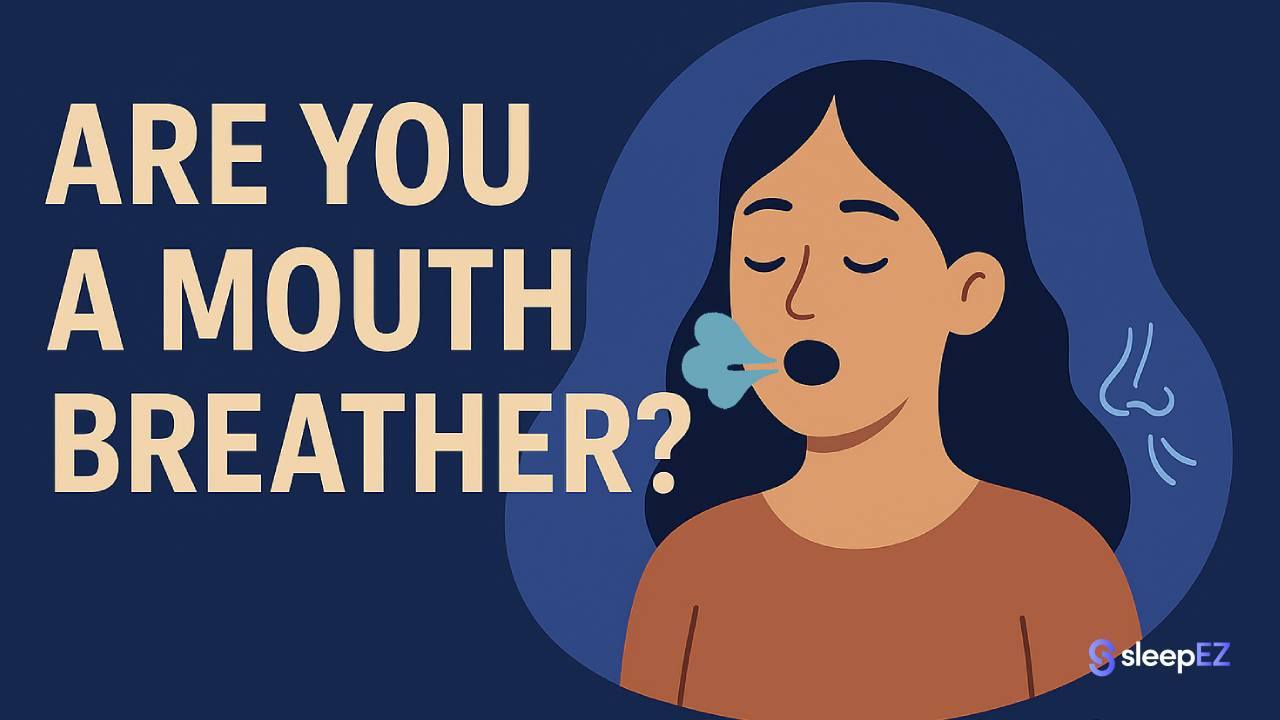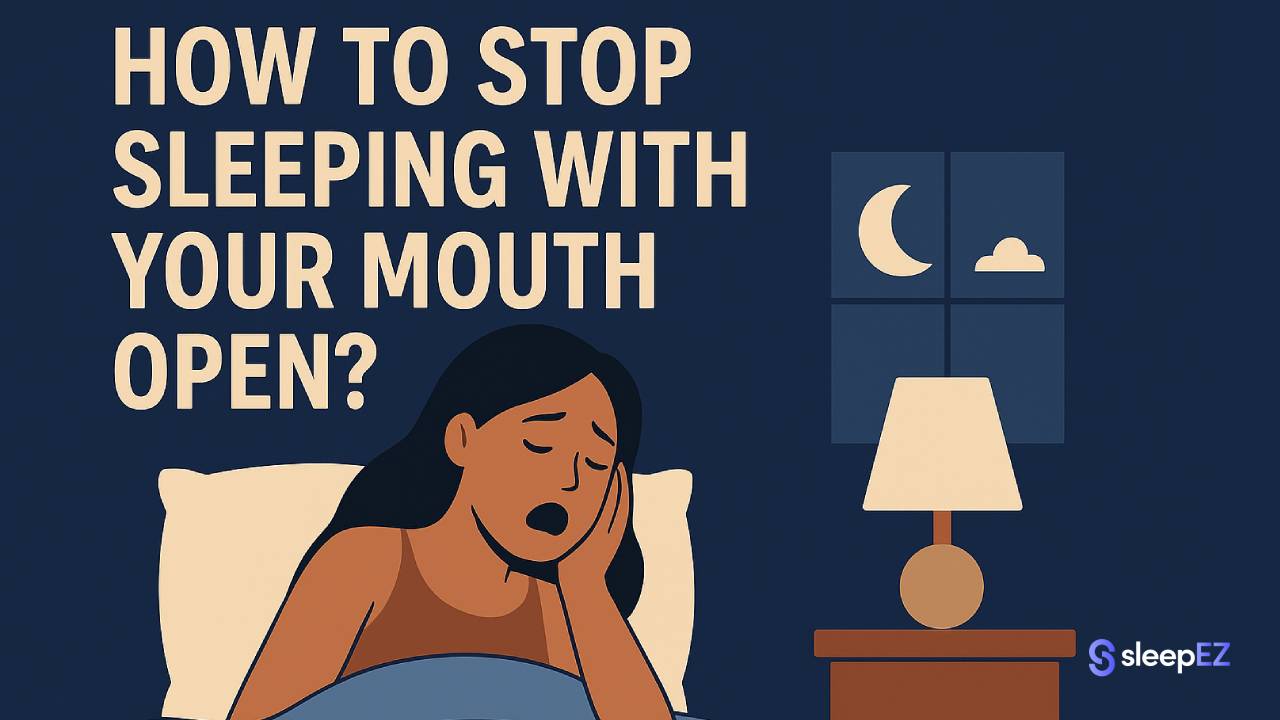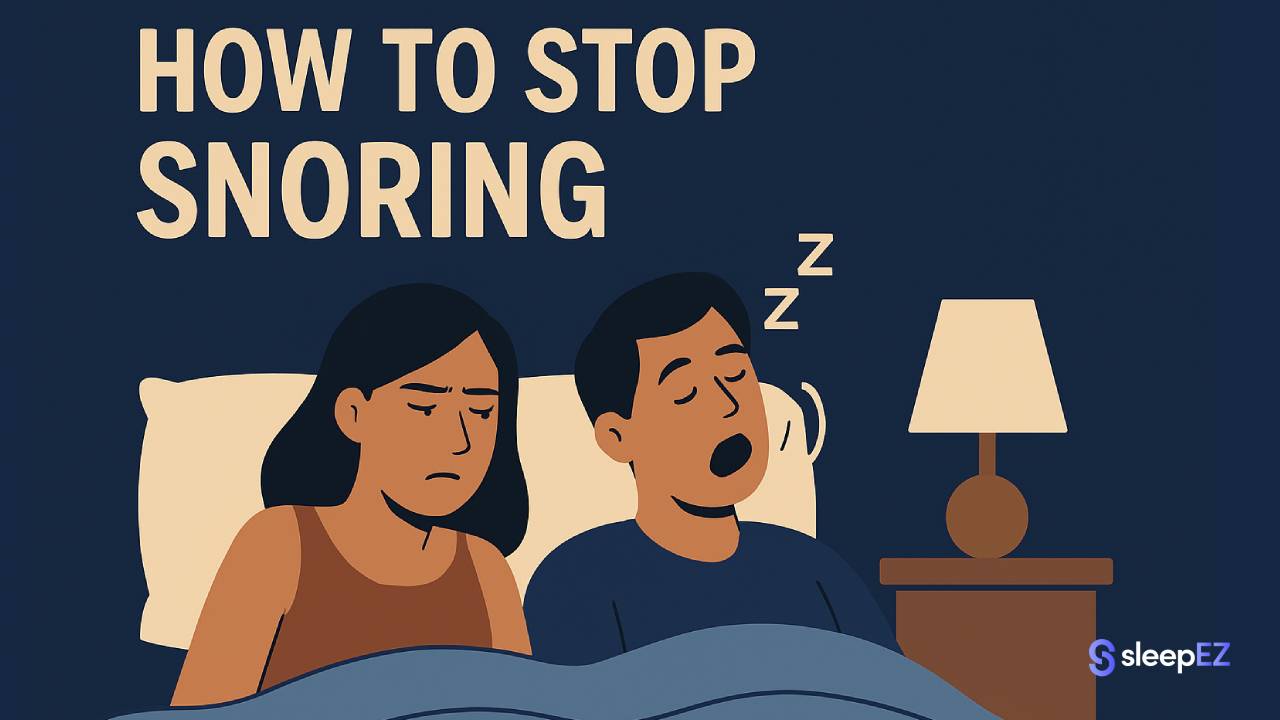Is waking up tired your new normal? Do you find drool spots on your pillow? Does your first thought when you open your eyes involve finding water?
These aren't random annoyances. They're signs that you might be breathing through your mouth at night instead of your nose.
This article gives you a clear checklist to identify if you're a mouth breather and explains what to do about it.
The Mouth Breather Checklist: 7 Telltale Signs
Not sure if you're a mouth breather? Check yourself against these seven signs. If you recognize three or more, your body is telling you something important about how you breathe at night.
Sign 1: Persistent Dry Mouth & Thirst
You wake up and your mouth feels like sandpaper. Your tongue sticks to the roof of your mouth. You need water immediately.
When you breathe through your mouth all night, air flows directly over your tongue and the inside of your mouth. This constant airflow evaporates saliva faster than your body can produce it. The result is extreme dryness and an intense morning thirst that doesn't happen with nasal breathing.
Sign 2: Snoring
Your partner complains about your snoring. Or maybe you wake yourself up with loud snorts and gasps.
When you breathe through your mouth during sleep, air hits the soft tissues at the back of your throat. These tissues vibrate as air passes over them, creating the sound we call snoring. The more relaxed these tissues become during deep sleep, the louder the snoring gets. Nasal breathing keeps air flowing through a different pathway that doesn't cause these vibrations.
Sign 3: Bad Breath (Halitosis)
Your morning breath is beyond normal. It's noticeably worse than it should be, even when you brush before bed.
Saliva contains antibacterial compounds that keep your mouth clean. When mouth breathing dries out your mouth, bacteria multiply without anything to control them. These bacteria produce sulfur compounds that smell terrible. A dry mouth is basically a breeding ground for the bacteria that cause bad breath.
Sign 4: Waking Up Tired (Chronic Fatigue)
You slept for eight hours but feel like you barely rested. You hit snooze multiple times. You need coffee just to feel human.
Mouth breathing leads to less efficient oxygen exchange in your lungs. Your body doesn't get the quality oxygen it needs, which disrupts your sleep cycles. You might not remember waking up, but your brain isn't getting the deep, restorative sleep it requires. The result is chronic fatigue that no amount of sleep seems to fix.
Sign 5: Hoarse Voice in the Morning
Your voice sounds rough and scratchy when you first wake up. You need to clear your throat repeatedly before you can speak normally.
Just like the dry mouth effect, breathing through your mouth all night dries out your vocal cords. These delicate tissues need moisture to function properly. When they're dried out from hours of air exposure, they become irritated and inflamed, causing that characteristic morning hoarseness.
Sign 6: Frequent Drooling
You regularly wake up with wet spots on your pillow. Sometimes you feel dried drool on your face or chin.
When your mouth hangs open during sleep and your facial muscles are completely relaxed, saliva has nowhere to go but out. Drooling is your body's response to an open mouth during sleep. It's one of the most obvious physical signs that you're not breathing through your nose at night.
Sign 7: Dark Circles Under the Eyes
You have persistent dark circles or bags under your eyes, even when you think you're getting enough sleep.
Poor quality sleep affects blood flow and causes fluid retention around your eyes. When mouth breathing prevents you from getting truly restorative sleep, your body shows the strain through these visible signs. Dark circles are your face revealing that your sleep isn't as good as it should be.
Read: How To Stop Sleeping With Your Mouth Open
Common Causes of Mouth Breathing
Understanding why you breathe through your mouth helps you find the right solution.
Nasal congestion is the most common cause. Allergies, colds, sinus infections, or chronic inflammation block your nasal passages. When you can't get enough air through your nose, your body automatically switches to mouth breathing.
A deviated septum means the wall between your nostrils is crooked or off-center. This structural issue makes it physically harder to breathe through your nose, especially when lying down.
Enlarged tonsils or adenoids can block your airway. This is particularly common in children but can affect adults too.
Habit plays a role. Some people started mouth breathing due to congestion or illness and never switched back to nasal breathing, even after the original problem resolved.
The Long-Term Consequences
Mouth breathing isn't just uncomfortable. It affects your health in measurable ways.
Poor sleep quality impacts everything from your mood to your immune system. When you're not breathing efficiently at night, your body can't complete the repair and restoration processes that happen during deep sleep.
Dental problems develop because a dry mouth can't protect your teeth and gums properly. You're at higher risk for cavities, gum disease, and tooth decay.
Your quality of life suffers. Chronic fatigue, brain fog, and irritability become your baseline. You're functioning below your potential because your body isn't getting the oxygen it needs.
In children, chronic mouth breathing can actually affect facial development and dental alignment. The consequences compound over time.
How to Fix It: Reclaiming Your Breath
The goal is simple: make nasal breathing your automatic default, especially during sleep.
The challenge? You can't consciously control your breathing when you're asleep. Your daytime efforts to breathe through your nose don't carry over once you lose consciousness.
So, what's the solution? For a growing number of people, the answer is using mouth tape for sleep.
The simplest way to ensure your mouth stays closed and encourage your body to use its natural nasal breathing pathway is with a purpose-built tool. Breathe Mouth Tape provides a comfortable, secure seal, training your body to breathe correctly all night long.
Mouth tape does exactly what it sounds like: it gently keeps your mouth closed during sleep. This forces your body to breathe through your nose, the way it's designed to. Most people notice improvements in the first few nights. Better sleep, more energy, no more dry mouth.
If you have severe nasal congestion or structural issues, address those first. See a doctor about allergies or a deviated septum. But for most people, the primary issue is simply that their mouth falls open at night. Mouth tape solves this directly.
To learn more about why nasal breathing is so important for your health, read our detailed guide on Nose Breathing vs. Mouth Breathing.
Take Control of Your Sleep
If you checked off several items on this list, you're not alone. Millions of people are mouth breathers without realizing it.
The good news? This isn't a quirk you have to live with. It's a fixable problem with a clear solution.
Stop letting mouth breathing control your sleep and energy. Take the first step towards waking up refreshed and make the switch tonight.




Leave a comment
This site is protected by hCaptcha and the hCaptcha Privacy Policy and Terms of Service apply.